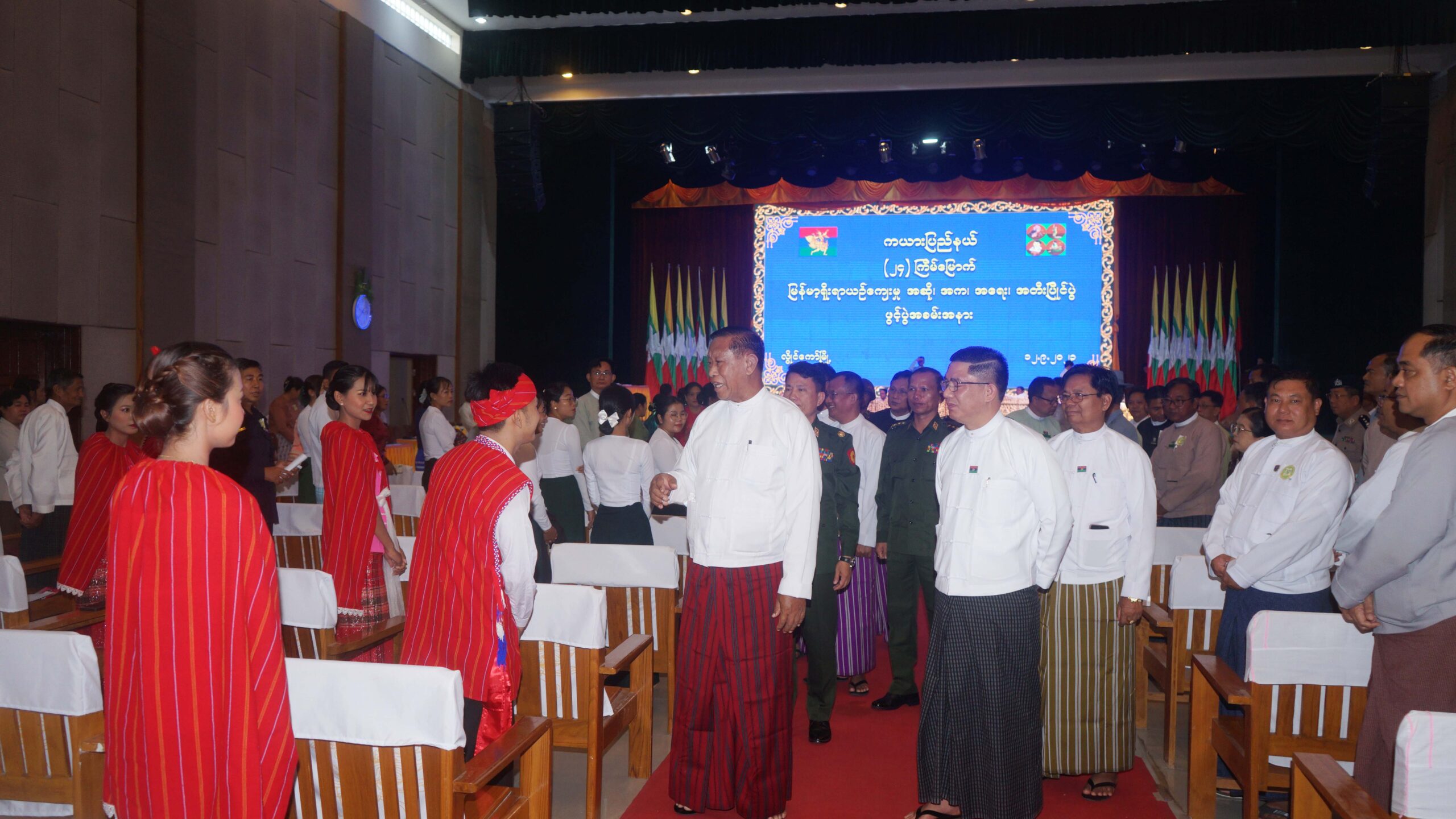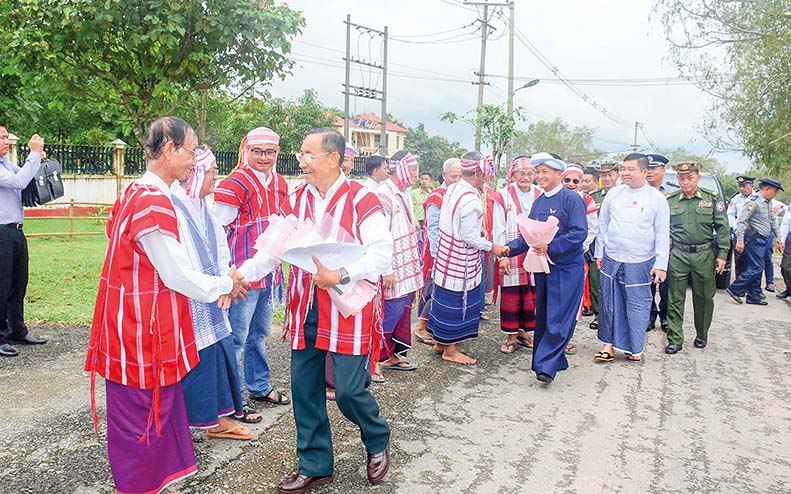Ethnic members of the regime’s governing body, the State Administration Council (SAC), recently conducted a campaign in Kachin, Kayah, Karen and Mon states to “mobilize support from local people and effectively utilize their support to create peace and stability in [their] respective areas.”
The charm offensive was the brainchild of junta boss Min Aung Hlaing who told council members to do it at a meeting in early September.
The campaign, however, was limited to state capitals and neighboring towns where there was no fighting. Among the states visited by ethnic members of the SAC, only Mon State is relatively stable. The armed revolt against the regime is widespread across Kachin, Kayah and Karen states, except in towns controlled by the regime.
When Min Aung Hlaing formed the SAC following the coup, he included ethnic politicians in the council to enhance its legitimacy. For more than two years, their posts were merely ceremonial. The campaign finally gave them a role to play in one of the latest desperate measures of the regime to dissuade the country’s ethnic armed organizations (EAOs) from fighting against it.

Many of the ethnic members of SAC who recently traveled to ethnic states were appointed to the body following its reshuffle in February.
Min Aung Hlaing himself left Naypyitaw on Saturday to meet junta-affiliated militias from northern Shan State in Lashio Town. His visit came amid heightened tensions between junta troops and the Ta’ang National Liberation Army in and around Muse and Kutkai townships. At the meeting, Min Aung Hlaing said he appreciated and respected militias, and called for collaboration between the military, government and people for regional stability.
SAC members—ethnic Wa politician Yan Kyaw and ethnic Ta’ang politician Shwe Kyein—accompanied Min Aung Hlaing on his campaign to Lashio that ended on Tuesday. They met department staff, community elders, business owners, and literary and cultural associations.
An ethnic Kachin member of the SAC, Dwe Bu, visited Kachin State from September 7-12, where she met teachers, business owners and religious leaders in Myitkyina and Bhamo townships, and called for their cooperation in holding general elections proposed by the regime sometime in the future. She also urged them to cooperate with the regime in its “peace and development” efforts.

Ethnic Karen council member Mahn Nyein Maung and ethnic Pa-O member Khun San Lwin also traveled to Mawlamyine, Kyaikmaraw and Thaton townships in Mon State, and Hpa-an Hlinebwe Township in Karen State from September 8-11, to explain the regime’s ongoing work for “peace and economic development” as well as its future plans. They donated cash to literary and cultural associations, as well as monasteries and nunneries.
Mahn Nyein Maung, former member of the central executive committee of the Karen National Union and Kayin People’s Party, met Karen people, and Pa-O National Organization chair Khun San Lwin met local Pa-O communities.
Ethnic Kayan SAC member Poe Reh Aung Thein, a USDP member and former Upper House lawmaker, met department staff, community elders, business owners and representatives of social organizations in Kayah State’s Loikaw Township. He called for their cooperation in the regime’s efforts to bring “stability” to Kayah, and support for the election.
He also donated cash to literary and cultural associations.

















